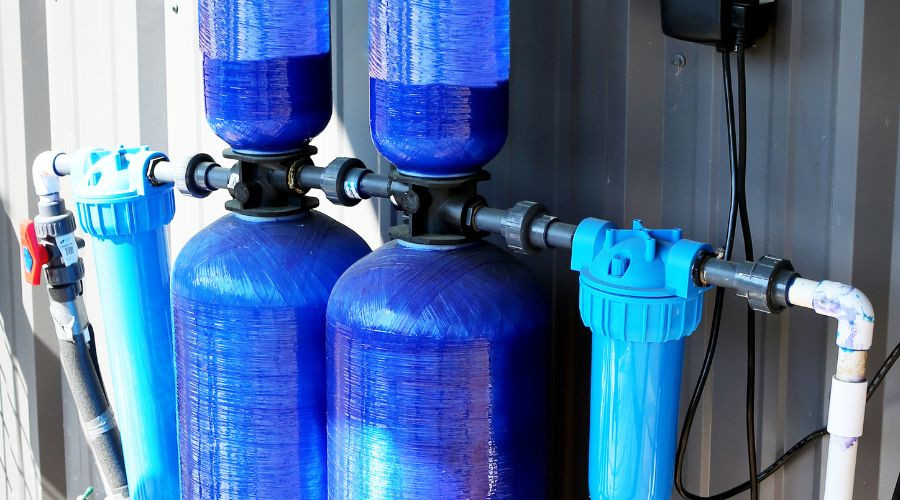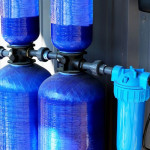The Importance of Installing a Whole House Water Filter
With contamination concerns rising in municipal water supplies nationwide, a complete home filtration approach has become increasingly essential for health-conscious homeowners. According to the Environmental Working Group, tap water in all 50 states contains potentially harmful substances, with over 270 contaminants detected in America's drinking water systems.
Investing in a whole-house water filtration system safeguards health and ensures cleaner, fresher water every day. Rather than filtering water at individual points, this comprehensive solution treats water as it enters the property, ensuring clean water flows from every tap. This post explores the remarkable benefits of installing a water filtration system, shows how it improves overall well-being, and guides one step by step toward a healthier lifestyle.
How Water Filtration Systems Work to Protect the Home
A home water filtration system works by removing contaminants, impurities, and unwanted substances from tap water through various physical and chemical processes. These systems act as a protective barrier between potentially harmful substances and drinking water. They can target specific pollutants depending on the filtration method used.
Most residential water purification systems employ a multi-stage filtration process to ensure comprehensive water treatment. First, water passes through a sediment pre-filter that captures larger particles like sand, rust, and debris. Next, activated carbon filters remove chlorine, pesticides, and organic compounds that affect taste and odor. The carbon attracts these chemicals like a magnet. Some advanced systems include ion exchange or reverse osmosis stages for removing dissolved minerals and microscopic contaminants.
The effectiveness of water purification technology depends largely on the specific contaminants present in the local water supply. For instance, if hard water is present, a system with ion exchange capabilities will reduce scale buildup in pipes and appliances. Homes with bacterial concerns might need UV filtration components. Testing the water helps determine which filtration approach best suits the situation. Understanding specific water quality challenges is the first step toward selecting the right system that delivers clean, great-tasting water directly to the faucet.
Whole-House Water Filtration: Comprehensive Protection for the Home
 Installing a whole-house water filtration system protects against contaminants at every tap in the home. Unlike point-of-use filters that only purify water at specific outlets, whole-home filtration treats water as it enters the house, ensuring clean water flows through all pipes, appliances, and fixtures. Complete coverage is vital.
Installing a whole-house water filtration system protects against contaminants at every tap in the home. Unlike point-of-use filters that only purify water at specific outlets, whole-home filtration treats water as it enters the house, ensuring clean water flows through all pipes, appliances, and fixtures. Complete coverage is vital.
One of the most compelling benefits of whole-house water filters is their ability to remove chlorine, sediment, and harmful chemicals that can affect both health and the home. These filtration systems effectively reduce exposure to contaminants while extending the lifespan of appliances. According to the Water Quality Association, properly filtered water can help appliances last 25-30% longer by preventing mineral buildup and corrosion. The potential savings on replacement costs are significant.
Beyond the practical advantages, whole-house filtration dramatically improves everyday water experiences. A morning shower becomes more refreshing with chlorine-free water that’s gentler on skin and hair. Additionally, filtered water enhances the taste of beverages and home-cooked meals while eliminating unpleasant odors. With a residential water purification system in place, there will be softer laundry, clearer ice cubes, and reduced soap scum on fixtures. The investment pays dividends in quality of life improvements.
Signs the Home Needs a Water Filtration System
 Recognizing the need for water filter installation early can save plumbing, appliances, and potentially health. Many homeowners miss crucial indicators that household water quality requires attention. These telltale signs often appear gradually but shouldn’t be ignored.
Recognizing the need for water filter installation early can save plumbing, appliances, and potentially health. Many homeowners miss crucial indicators that household water quality requires attention. These telltale signs often appear gradually but shouldn’t be ignored.
Unusual taste or odor is perhaps the most obvious red flag. If water has a metallic, sulfuric (rotten egg), or chlorine-like taste, contaminants may be present. Visual cues matter too. Cloudy appearance, floating particles, or discoloration ranging from yellow to brown typically indicates sediment, rust, or mineral buildup requiring filtration. Water should be crystal clear.
Physical evidence around the home provides additional confirmation. Scale buildup on faucets, shower heads, and inside appliances suggests hard water with excessive mineral content. Similarly, water spots on dishes after washing and stiff laundry after multiple washes point to water quality issues. According to the Water Quality Association, approximately 85% of American homes have hard water problems that could benefit from proper filtration. Furthermore, recurring plumbing issues like clogged pipes or decreased water pressure often stem from unfiltered minerals accumulating in the system over time.
With these water quality warning signs in mind, consider testing the water supply to identify specific contaminants. Home testing kits provide basic information, while professional water quality assessments offer comprehensive analysis. Either approach helps determine the most appropriate water filtration solution for the specific situation.
About Allore's Plumbing Services LLC
Allore's Plumbing Services LLC is a trusted plumbing services company serving Stuart, FL since 1986. They offer emergency plumbing assistance, highly trained technicians, and guaranteed satisfaction. Call them for water filtration systems in Stuart, FL.



